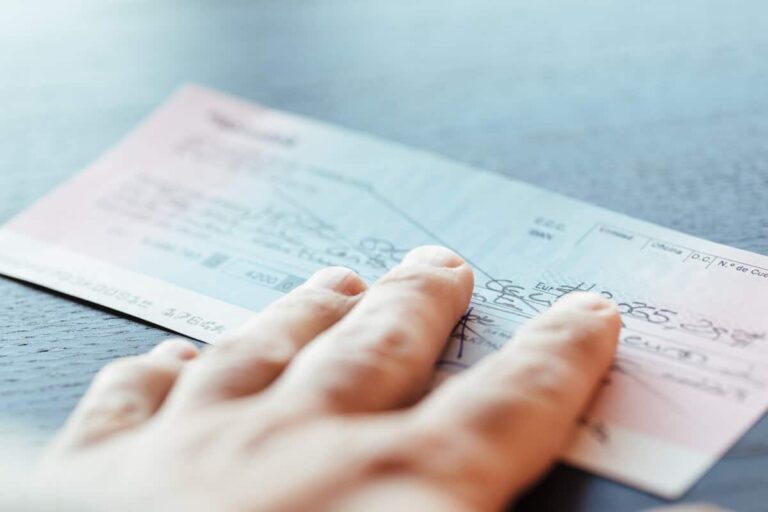When you deposit a check, it’s natural to wonder how long it will take for the money to become available for use. Depending on the type of check, your bank’s policies, and where the funds are coming from, clearing times can vary. Understanding this process can help you plan your finances and avoid unnecessary delays.
This blog explores the factors that determine how long it takes for a check to clear, the typical timelines for different types of checks, and tips to accelerate the process.
The Check Clearing Process Explained
What Happens When You Deposit a Check?
When you deposit a check, whether at a bank, ATM, or through a mobile app, it initiates a process often referred to as “check clearing.” This involves the following steps:
- Deposit Verification
The bank verifies that the check belongs to a valid account and the details are accurate. It may also assess the risk of the check bouncing.
- Funds Verification
Your bank contacts the issuing bank to confirm there are sufficient funds in the check writer’s account.
- Transfer of Funds
If verification checks out, the funds are transferred to your account and will become available based on your bank’s policies.
What Determines the Timeframe?
Several factors influence how long it takes for a check to clear:
- Type of Check: Personal, cashier’s, government checks, or money orders have different processing durations.
- Bank Policies: Each financial institution operates differently, with various hold times for deposits.
- Deposit Method: Mobile and ATM deposits may have different timeframes than in-branch deposits.
- Weekends & Holidays: Non-business days can delay the process.
- Check Size: Larger amounts may undergo additional scrutiny, extending processing times.
Typical Timeframes for Different Checks
1. Personal Checks
Personal checks usually take 2–5 business days to clear. If the check is local (from the same bank or region), the process may be faster.
2. Cashier’s Checks and Money Orders
These types of checks are often processed within 1 business day, as they are considered more secure and come with a guarantee of available funds.
3. Government Checks
Federal or state-issued checks, such as tax refunds, tend to clear within 1 business day, thanks to their guaranteed validity.
4. Third-Party Checks
Third-party or endorsed checks may take 5–7 business days or more due to the added layer of verification required.
5. International Checks
If a check is drawn from a foreign bank, the process can take much longer. Expect anywhere from 2–8 weeks, as currency conversions and international banking networks add complexity.
Factors That Can Delay Check Clearing
Even within the above timeframes, certain situations can cause delays. Keep in mind:
- Non-Business Hours: Depositing a check in the evening or over the weekend often pushes the process to the next business day.
- Large Check Amounts: Banks may impose longer hold periods for unusually large amounts.
- Suspicious Activity: If a check seems fraudulent, the bank may perform additional verification steps.
Not all delays are preventable, but understanding these causes can help you plan ahead.
How to Ensure Faster Clearing
Here are strategies to help your check clear more quickly:
1. Choose Direct Deposits When Possible
If you’re frequently receiving checks (e.g., salary payments), setting up direct deposit can eliminate clearing delays entirely.
2. Deposit Checks Early
Depositing a check early in the day gives your bank time to process it that same business day. Late-day deposits may not start processing until the next day.
3. Use Mobile Deposit Features
Many banks process mobile check deposits faster than physical check deposits at the branch. Mobile apps typically provide quicker access to the first portion of your funds.
4. Deposit with the Issuing Bank
If possible, cashing or depositing the check with its issuing bank may speed up the clearing process since it skips inter-bank communication.
5. Know Your Bank’s Policies
Familiarize yourself with your bank’s hold policies. Some banks offer early availability options for verified accounts or long-standing customers.
FAQ Section
How long does it take for a check to bounce back?
If a check is returned due to insufficient funds or fraud, it typically bounces back within 2–3 business days. However, in some cases, it can take up to 5–7 business days.
Why are some funds available immediately while others are held?
Banks often follow a “next-day availability” policy where a portion of your deposit is made available immediately. However, the rest may be held if the check is large, from an unknown account, or issued by an out-of-state bank.
Can I cash an international check faster?
International checks are inherently slower to process. To expedite, contact your bank and inquire if they offer faster processing through partnerships with international banking institutions.
What happens if an international check clears but the amount is incorrect after exchange?
This scenario can occur due to fluctuating exchange rates. Banks typically process international checks using the exchange rate at the time of settlement.
Can I avoid delays for large checks?
Yes. Contact your bank in advance to inform them of the deposit. Some banks might offer expedited verification for account holders in good standing.
Make Smart Deposits with Confidence
Understanding the check clearing process equips you with the knowledge to plan effectively, minimize delays, and access your funds more quickly. Whether you’re depositing personal checks or dealing with international transactions, knowing what to expect eliminates uncertainty.
If you’re dealing with frequent check deposits as part of international transactions, we also recommend exploring how to send money safely via wire transfers. Wire transfers may offer a more immediate solution.
